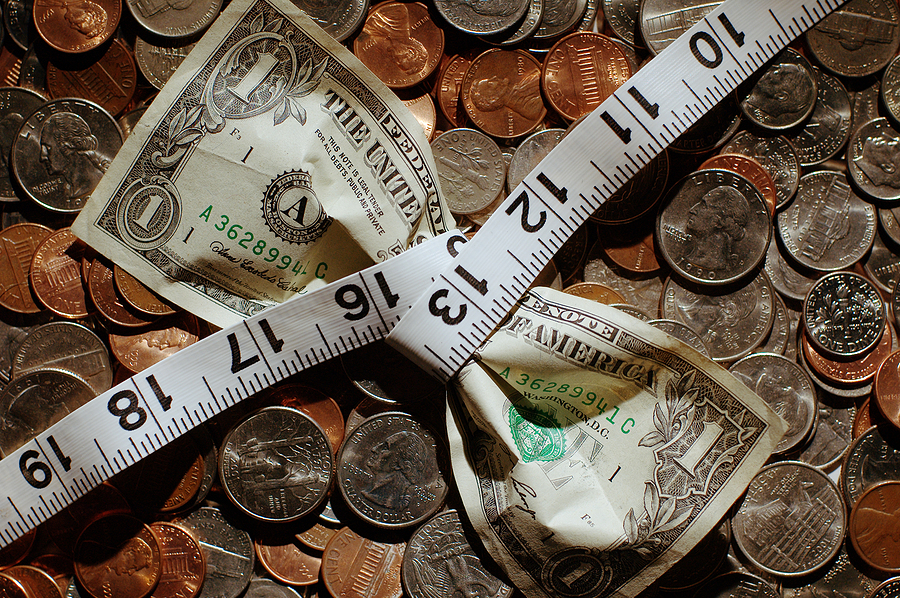You can’t watch TV without seeing a commercial from Sen. Bob Casey Jr. blaming inflation on corporations with “Greedflation” and “Shrinkflation” as the catchwords.
However, a new report is debunking Democrats Casey and President Joe Biden, who also uses the terms. According to the report from Americans for Prosperity, Casey has “cherrypicked” the data and does not account for corporate expenses before calculating profits.
The report, “The Bidenflation Blame Game: How Big-Spending Politicians Scapegoat Business,” by Kurt Couchman, AFP senior fellow in fiscal policy, andAFP Economic Policy Analyst Ilana Blumsack, lays the blame for inflation squarely on government spending rather than lawmakers’ businesses for higher prices or downsizing products.
Couchman told DVJournal “Congress and the White House need to get the spending and the debt under control. That is the urgent requirement for getting inflation and interest rates back under control. We need Congress to get serious about fixing the budgeting.”
Congress spent a lot and borrowed a lot during the pandemic and immediately afterward.
“And, of course, there had been rising deficits before that, but the pandemic spending splurge, all borrowed money, really drove up the debt,” said Couchman. “The Federal Reserve had to buy a lot of that debt. And then, it was the American Rescue Plan Act, $1.9 trillion of new borrowed spending, when the Democrats took control of everything that was the metaphorical straw that broke the camel’s back. That’s when we saw inflation immediately in March 2021, when they passed that thing, and then they kept building on it. They kept spending more and more money that we didn’t have. So that added to the inflationary fire.”
“The Biden administration approved $6 trillion in new debt,” he said. In addition to the American Rescue Plan, there were the Inflation Reduction Act and the Chips Act.
“And it only cooled off when Republicans gained enough seats to win control of the House of Representatives,” Couchman added.
As for Casey and Biden’s contention that the blame for inflation lies with greedy corporations, Couchman said that is not true.
His report shows corporate profits have remained relatively stable.
“Sen. Casey from Pennsylvania had claimed corporate profits were driving inflation over the last couple of years,” said Couchman. Casey’s November 2023 inflation report “just didn’t pass the smell test,” he said. “I looked at his methodology, and he used some funny timing. He looked at the second quarter of 2020, which was when the economy was pretty much locked down. And then compared it to two years after when we had basically recovered. And it turned out that he used a measure that wasn’t actually corporate profits because it excluded a bunch of really significant expenses, and profits are revenues minus costs.”
When you factor that in, “you see that corporate profits have only grown along with the broader economy,” said Couchman.
Casey did not respond to a request for comment.
Nate Sizemore, a spokesman for Casey’s Republican opponent, Dave McCormick, said, “Bob Casey is grasping at straws to distract voters from the truth. He rubber-stamped trillions in wasteful federal spending, fueling the war on energy, and creating the sky-high inflation crushing Pennsylvania families. Come November 5, voters across the commonwealth will hold Casey accountable for his disastrous economic record.”
AFP Regional Director Ashley Klingensmith said, “Real leaders own up to their failures when they’re wrong. What we’re seeing from members of Congress—including my senator, Bob Casey—is an immature and deceptive excuse to cover up a lousy voting record. Sen. Casey and many other lawmakers have voted in lockstep with President Biden but aren’t willing to own the consequences, apologize, or change course. But we at AFP-PA will ensure that Pennsylvanians know his voting record and encourage them to call his office and tell him to stop voting for an agenda that’s actively hurting the Keystone State.”
Couchman said there are major ramifications since the country’s debt is now nearly 100 percent of the gross domestic production (GDP).
“It’s estimated by the International Monetary Fund and others that somewhere between 70 and 80 percent of GDP is when debt drag starts to happen,” he said. “We’re at about 100 percent of GDP.” This could slow economic growth because “the government debt is crowding out the private sector.” And people are starting to worry about whether the federal government can pay its “timely interest in principle on the debt,” causing uncertainty.
The housing market is already affected by higher interest rates on mortgages, credit cards, and car loans.
All this came from “too much spending, which came from bad decisions by Congress and the president,” he said.
Please follow DVJournal on social media: Twitter@DVJournal or Facebook.com/DelawareValleyJournal

